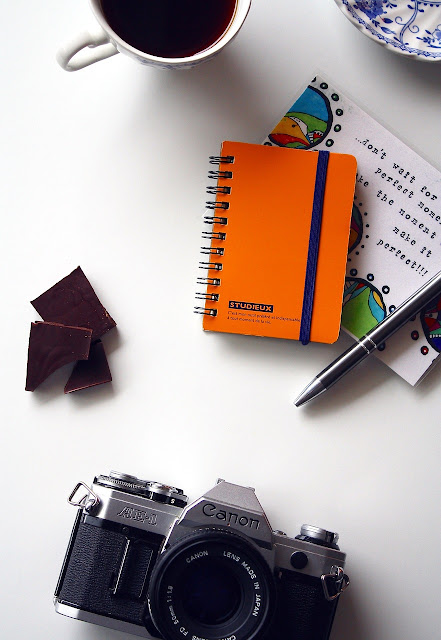 |
| Will You Lose More Weight if You Keep a Fitness Journal image courtesy of Pixabay |
Will You Lose More Weight if You Keep a Fitness Journal?
A fitness journal gives you a place where you can compile the information from all your fitness efforts, and then add details about the experience, like your mood, what you were feeling when you ate different foods - and after you ate them, how you felt during and after you exercised, and you can even just record if you were having a lousy day, ate a whole chocolate cake, and skipped your workout routine.The advantage of having place where everything is compiled to show the picture is you can look at it any time, and after a few days or weeks, you'll start to see trends in your behavior. Sure, you might already know you eat too much pizza on movie night with your significant other or your kids, but seeing it in writing helps make it real and gives you a place to start the work of changing that behavior.
Easy Ways to Track Your Diet and Fitness Efforts
Notebook: SparkPeople notes that a fitness journal can be as simple as a spiral notebook where you record your personal information. Because I enjoy the feeling of making handwritten notes, this is my preferred method of journaling. I do, however, tend to hold back on my feelings when I write in a paper journal because people in my house snoop (you know who you are), and I like my innermost feelings to remain private rather than things to discuss at the dinner table.Digital Documents: A password encrypted document is a great way to journal if you want to avoid prying eyes - whether you are keeping your emotions private or simply don't want your family to know you ate four Almond Joy candy bars for lunch instead of your salad. The problem I have with the digital journal format is that it is inconvenient for me. I've tried entering things from my phone, but it scrambles and autocorrects them until I can't decipher them.
Blogging: If you're cool with others reading about your efforts and emotions, a blog is a fun way to keep a fitness journal. It's actually what I do and am beginning to expand on, with the exception of leaving out things about being angry at people and stuffing myself with junk food as a result - no good can come of making someone else feel bad - so I record those thoughts in private documents.
Smartphone Apps: Apps make it super easy to document activity and food intake. Some apps, like the S-Health app, record your steps and how fast you walk or run so you don't even have to do it yourself. If your app doesn't record everything you want to track, you can still get the advantage of using it and then transfer info from it into your fitness journal.
Fitness Trackers: If you get a very basic activity tracker, like the one I wrote about here, you upload the info in its compatible app. If you get one that syncs with your smartphone, it will save you work by transferring the data for you. Then you can update your fitness journal, whether you use paper or one of the digital formats, as you want.
A fitness journal is a handy tool you can use in your fitness quest, and if you make full use of the information you collect in it, it can help you lose weight faster, and it can help you keep the weight off for good.
Thanks for visiting Fat and Cranky! I hope you found this post interesting and helpful, and I encourage you to browse around the site. Feel free to share your thoughts in the comments section under any post on the site.Laure J
No comments:
Post a Comment